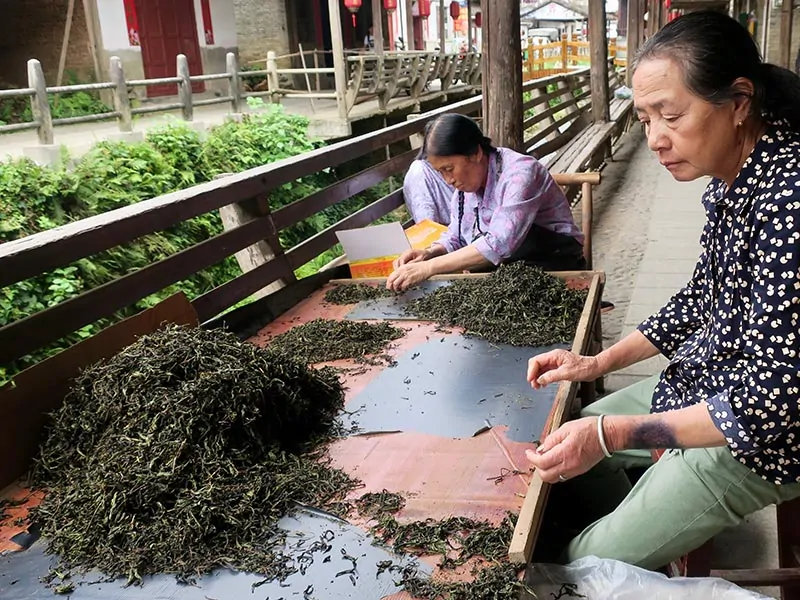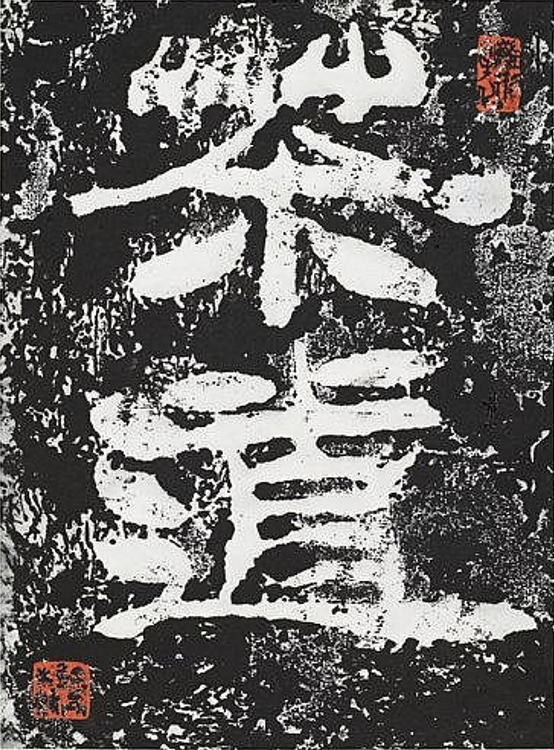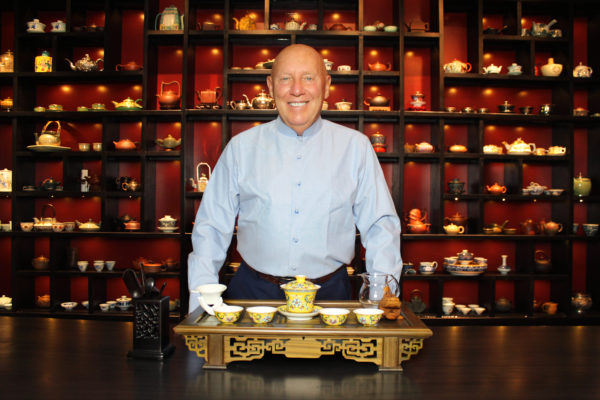Whether it be family, friends, travel groups or business colleagues, a guided tea tasting will be a unique experience. Join in on an interactive, senses-opening journey and explore:
- The tasting of three different types of fine curated Chinese Tea
- The preparation and brewing of tea
- The 270-year history of tea in Charleston and South Carolina
- The 5000-year history of tea in China
- The six major categories of tea (Green, Red, White, Yellow, Pu Er & Oolong)
- The health and well-being of drinking tea
An exhibition of tea ware including contemporary, vintage and antique tea pots and gaiwans
$85.00 per person for up to 8 guests
2 hours and 30 minutes tea tasting
For larger parties or special events, please contact us for group rates
Travel expenses may apply for locations 50 miles beyond Charleston
The tea tasting can be held at a home, office, hotel, wellness center, school setting or other convenient spaces selected by the host.
Book A Guided Tea Tasting
$85 per person 2 hours 30 minutes
Taxes will be calculated during checkout.

"I was so fortunate to come across For All the Tea in Charleston in my internet search for fun things to do in Charleston SC. The minute I began corresponding with Richard I realized this was a perfect gift for my friend who is very much a tea connoisseur. The experience as expected for my friend was over the top and will forever be a memory never forgotten. The most unexpected surprise was how much I truly enjoyed it myself. Being a coffee drinker and only knowing southern sweet tea I was captivated within the first few minutes. I came out of this experience with a new appreciation for tea, its history and the people who work so diligently to keep its past alive. I was overwhelmed at how wonderful the tea tasted, you could truly taste the work and effort put into it. My biggest take away was learning how tea is used as a way of bringing people together whether it is in family, friendship or disputes. This was proven by the fact that I could have spent another hour enjoying my time with Richard, his knowledge, my friend and the amazing taste of tea. Absolutely an amazing time!"
-Genesis
Connect With The Tea Culture In A Guided Tea Tasting
Let’s experience together an interactive, senses-opening journey with family, friends, travel groups, business colleagues and tea connoisseurs and enjoy ‘Cha Dao’ ‘The Way of Tea’. The tea tasting can take many forms including a casual atmosphere, a more formal experience or a Gongfu tea ceremony. The tea tasting can be held at a home, office, hotel, wellness centers, school settings, or other available spaces of your choice. We will enjoy several types of tea brewed in traditional Chinese tea ware. Discussions will include the history of tea in Charleston and China, the various types of tea, the skills to prepare the tea and the health and well-being of drinking tea. Throughout the ages, tea has brought people together to share positive thoughts. Harmony is the soul of the tea presentation!

“The Way of Tea”
“Cha Dao”
Xu Xi (1940-2015)
The artist Xu Xi is best known for his ink-and-wash paintings as shown in the copy of this painting with the Chinese characters 茶道.The English translation of 茶 (“Cha”) is ‘Tea’. The English translation of 道(“Dao”) is ‘The Way’. Though Dao is forever being defined and redefined. A list of definitions can include a “path”, “route”, “road” or sometimes more loosely “doctrine”, “principle” or “holistic beliefs.” The Dao or the Way, of Confucianism can be defined as ‘Truth’ in concert with life, politics and tradition.
When Cha and Dao are placed together, Cha Dao translates to “The Way of Tea”. This meaning stands at the heart of Chinese tea culture which refers to how tea is prepared as well as the occasions when people consume tea in China. A visitor to a Chinese home is invited to sit down and enjoy some tea with the host and make conversation. Another example of Chinese tea culture is where in the traditional marriage ceremony, the bride and groom kneel in front of their respective parents and serve them tea and then thank them, which represents an expression of their gratitude and respect. According to the tradition, the bride serves the groom’s family, and the groom serves the bride’s family. This process symbolizes the joining together of the two families.
Let’s take a short walk in the historical background of the tea ceremony.
The history of tea finds its roots in ancient China. Archaeological evidence suggests that tea plants were first cultivated in China as early as 6000 years ago, or 1500 years before the pharaohs built the Great Pyramids of Giza. Those original tea plants, Camellia Sinensis, are the same type grown around the world today, yet it was originally consumed very differently. Primarily it was eaten as a vegetable or cooked with grain porridge. Tea only shifted from food to drink 1500 years ago when people realized that a combination of heat and moisture could create a complex and varied taste from the leafy green.
In the Tang Dynasty (618-907) tea drinking became an art form and a drink enjoyed by all social classes. An important factor was the appearance of tribute teas grown and processed exclusively for the imperial court. Tea drinking was prevalent in the imperial court and there were many forms of tea ceremonies and tea parties. This is when “Cha Dao” or “The Way of Tea” and the attention to tea preparation and serving were the preoccupations of the Chinese tea connoisseurs which transformed the way tea was regarded by the Chinese.
The tea ceremonies in China have evolved from ancient times. For the most part, Chinese tea ceremonies are not as elaborate and intricate as Chanoyu, the Japanese tea ceremony. The Chinese tea ceremony is held in accordance with the Daoist feeling of spontaneity and carefree informality. A famous Chinese tea ceremony is named Gongfu tea ceremony. Gongfu is translated in English to ‘with skill’. This ceremony is widely presented in China, Hong Kong and Taiwan. It’s place of birth is unknown, though some historians place it in the Fujian region while it is mostly placed in the Guangdong region. Wulong Tea, or known as Oolong Tea in the English language, is traditionally served during this ceremony. The knowledge on brewing fine teas and bringing out the ultimate flavor and aroma, creating pleasant surroundings and interesting conversation is the foundation of the Chinese tea ceremony.


